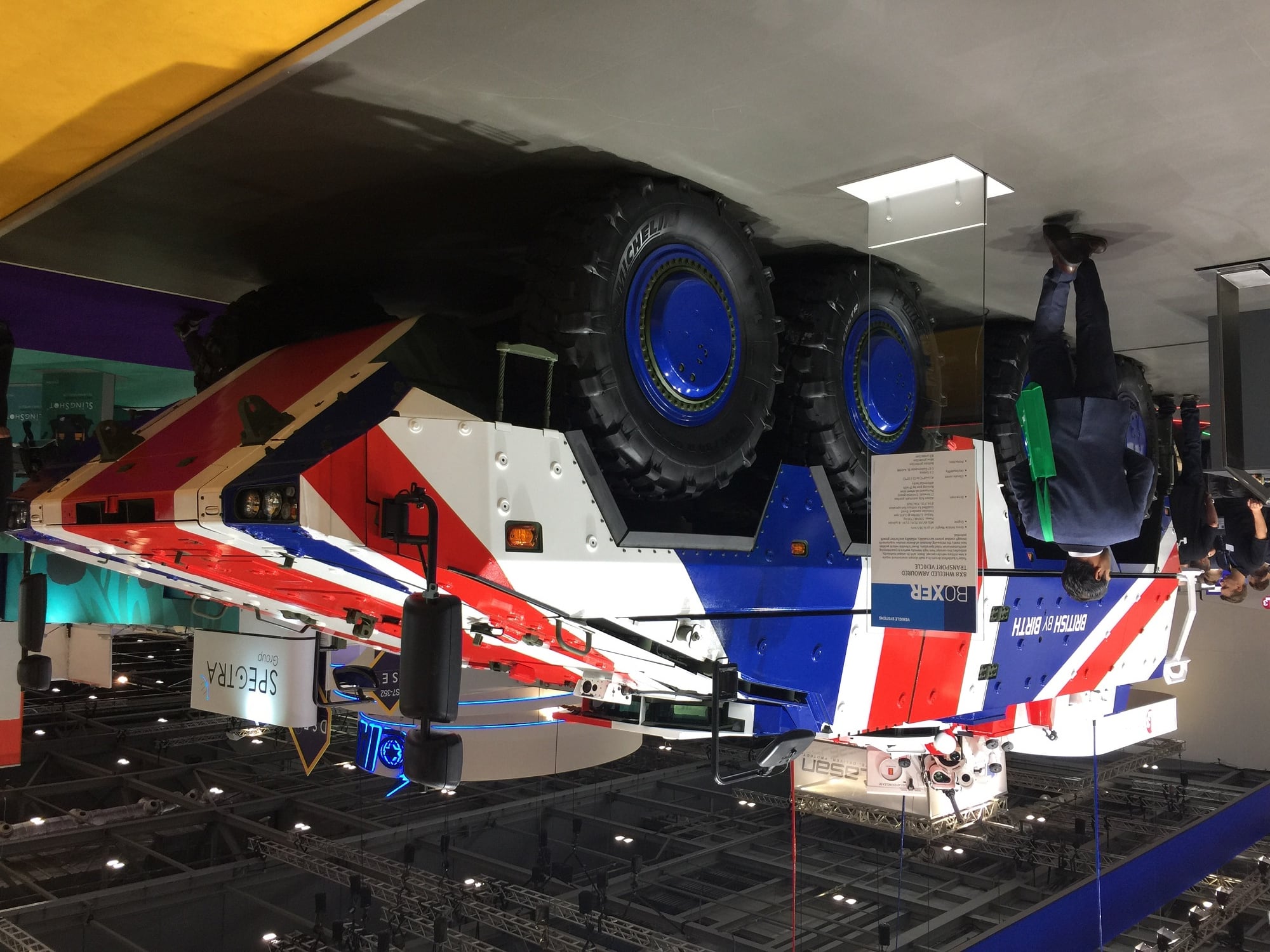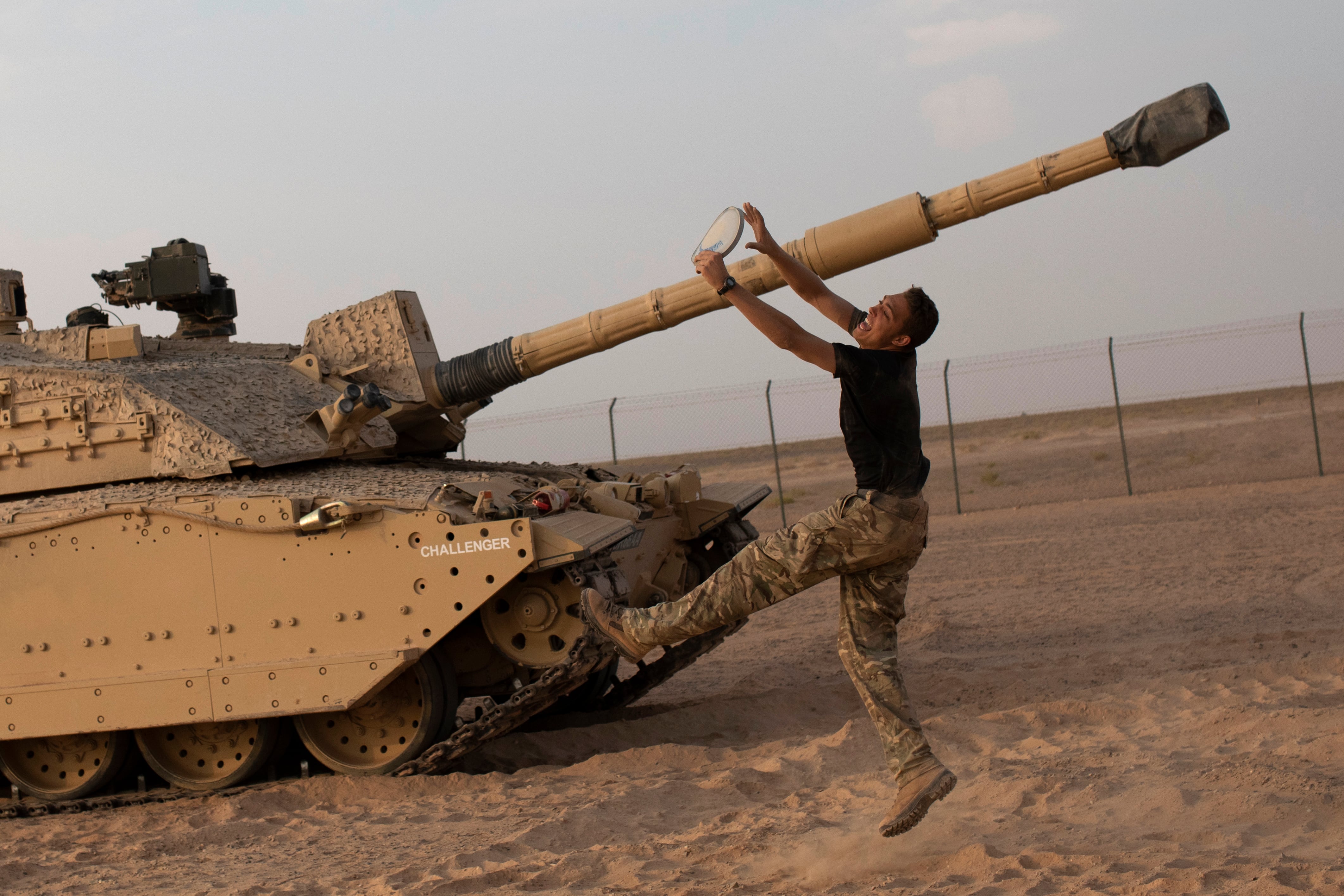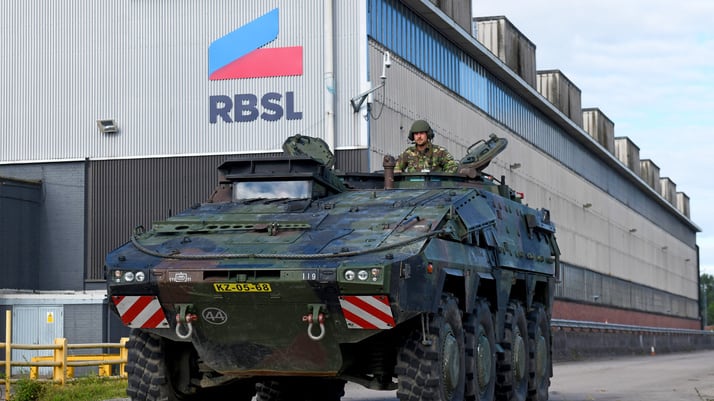LONDON and COLOGNE, Germany – Germany’s Rheinmetall and Britain’s BAE Systems on Monday launched their U.K.-based military vehicles joint venture, after British authorities approved the deal in mid-June, the companies announced.
The new outfit is named RBSL, short for Rheinmetall BAE Systems Land, and it’s based in Telford, West Midlands. Peter Hardisty, formerly of Rheinmetall UK, is the company’s managing director.
The joint venture sets out to “play a major role” in manufacturing the Boxer multirole fighting vehicle for the British Mechanised Infantry Vehicle program, according to a Rheinmetall statement. Official also have an eye on “other strategic combat vehicle programs” in addition to maintenance contracts for the British Army’s bridging- and armored-vehicle fleets, according to the company.
“This announcement is a clear vote of confidence in the UK’s defence industry as a world-leader in designing, supplying and supporting military vehicles,” Defence Secretary Penny Mordaunt was quoted as saying in the statement. “This exciting venture clearly demonstrates how Defence sits at the heart of the prosperity agenda. Its benefits will be felt in the West Midlands and across the UK defence supply chain, creating jobs, boosting exports and guaranteeing our technical skills base into the future.”
Some might think it was anything but.
That’s because the news also means Britain has lost its only big-name, armored-vehicle company in a joint venture where BAE is the junior partner. As a result, the country no longer has a domestically controlled mainstream vehicle supplier — although some would argue BAE forfeited that role a while ago.
The British company retains significant armored-vehicle design and build activities in the United States and Sweden.
RELATED

General Dynamics UK, Lockheed Martin UK and Rheinmetall now have significant investments in Britain’s armored-vehicle sector, with British involvement primarily led by specialist designers and builders like Supacat and Jankel and a still-vibrant sector supply chain.
It’s a far cry from 2004 when BAE acquired key domestic manufacturer Alvis, trumping an acquisition bid from General Dynamics with a last-minute offer of £355 million (U.S. $451 million) that was largely seen as a strategic move.
At the time, most of the British Army’s armored vehicle fleet was designed and supplied by Alvis.
But that’s dramatically changed. General Dynamics has recently started supplying its Ajax family of tracked reconnaissance vehicles to the Army in what is the biggest deal in the sector in three decades. Final assembly and testing takes place at company facilities in South Wales.
Lockheed Martin is leading the program to update the Warrior infantry fighting vehicle as well as supply turrets for the Ajax program from a factory in southern England.
RELATED

Rheinmetall is a partner in the Artec consortium selected without competition to supply Britain with the eight-wheel drive Boxer vehicle. The vehicle was nominated as the preferred option last year but a final production deal between RBSL and the Ministry of Defence has yet to be announced.
Rheinmetall and BAE have also been vying to supply a major upgrade of the Challenger 2 main battle tank for the British Army.
Mordaunt recently labeled the Challenger as “obsolete” due to the ministry’s failure to keep pace with technological advances in the sector.
In a speech to the Royal United Services Institute think tank last month, she said Britain had fallen behind it’s allies and rivals due to underinvestment in the armored vehicle sector.
A decision on the Challenger update program is expected shortly.
However, recent signals from the MoD suggest the Army may have got its wish to fall into line with other NATO members and go for the German company’s solution of a new turret and 120mm smoothbore gun to replace the rifled weapon currently fitted to the Challenger 2.
BAE’s weapons and ammunition activities in the U.K. are excluded from the deal, as is the CTAI joint venture with Nexter to build a new 40mm cannon.
Andrew Chuter is the United Kingdom correspondent for Defense News.
Sebastian Sprenger is associate editor for Europe at Defense News, reporting on the state of the defense market in the region, and on U.S.-Europe cooperation and multi-national investments in defense and global security. Previously he served as managing editor for Defense News. He is based in Cologne, Germany.







